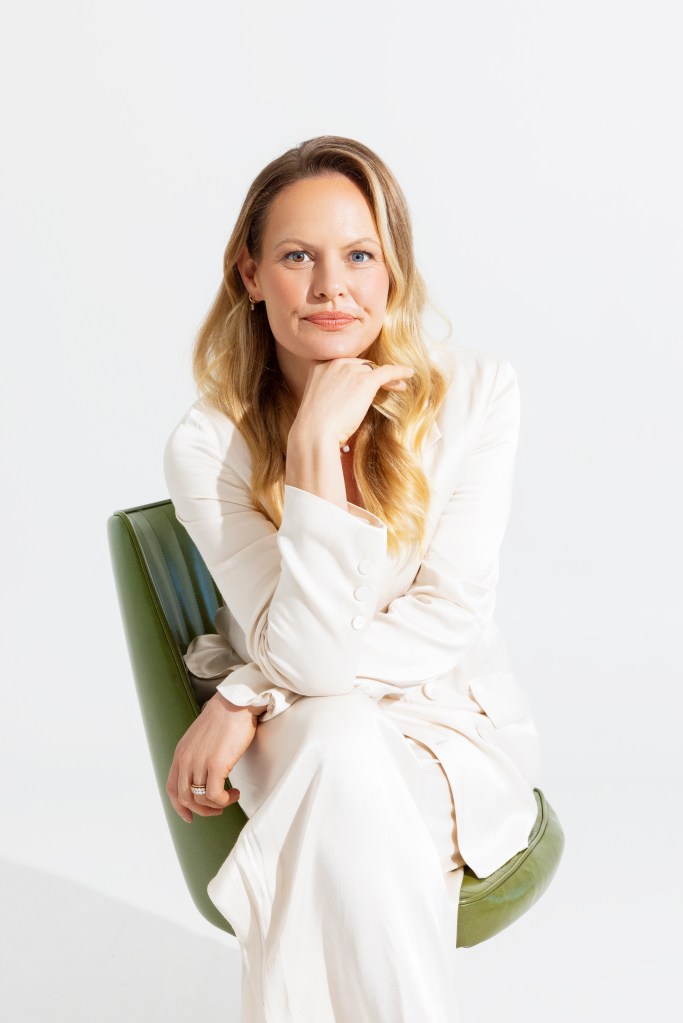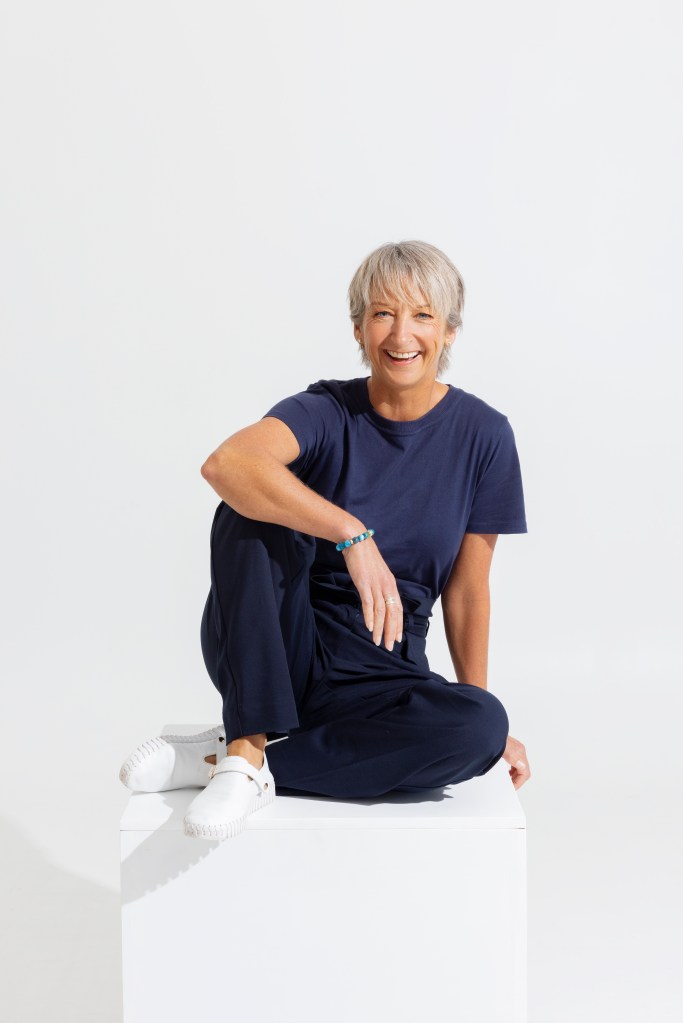Mental fitness has shifted from a nice-to-have to a performance issue. Tess Brouwer and Layne Beachley show how small, repeatable habits can pull leaders out of burnout, sharpen decision-making and lift the way teams work.
They’ll share these lessons live at the Forbes Women Soiree presented by Crown on Tuesday night.

Words by By Tess Brouwer and Layne Beachley AO, founders of Awake Academy
I was the go-to “get it done” person; the one who never said no. “Tess from Virgin” had become my entire identity, opening doors from multimillion-dollar deals to front-row seats at fashion week and even working with a 7x world champion who would later become my business partner.
On paper, I was thriving. But behind the gloss was a woman running on empty. I ticked every box – gym, clean eating, relentless drive – yet secretly drowned my self-loathing in having fun, masking it in drinking and busyness.
Then my wake up call happened. I had a skiing accident and ignored all the signs of a serious injury. I was too busy to be hurt. The body whispers before it screams, and mine ended up leading to re-designing my whole life. What was meant to be a six-week surgery turned into seven months in and out of hospital, three months in a spinal ward, and words etched into my brain: “major spinal cord injury, minor brain injury, spinal shock.”
I left hospital broken, 33 years old, in the psychiatric care of my parents while friends were getting married and having babies. My identity was gone. My resilience had to be rebuilt from the ground up.
Lesson One: Resilience Is Rebuilt in Micro-Moments (Tess)

What saved me wasn’t some overnight transformation. It was the smallest of daily rituals – regulating my nervous system, learning to love myself, breathing, journaling, being comfortable sitting in stillness and setting internal and external boundaries that shifted me from running on empty to leading with energy. I didn’t have time for all this ‘’stuff’ in the past – it all seemed too simple to be effective; I was too busy being busy. But now I understand the science and see the impact these tools have on people’s lives, I can’t imagine living my life without them.
When I take these lessons into boardrooms today, the impact is clear. The average worker receives 117 emails, and 153 Teams messages a day. Add in kids, social schedules and the mental load of home life, it’s no wonder leaders feel more burnt out by everyone else’s priorities than their own. Microsoft’s 2025 Work Trend Index confirms it: 57% of meetings are ad hoc, and it takes up to 20 minutes for our brains to refocus after each interruption. We’re living in an attention-flooded world.
Leaders need permission to pause, not as a wellness cliché, but as a strategic performance tool. Rest is the number one high performance tool. Not perfection, just presence.
Lesson Two: Reframing Failure (Layne)

For years, I wore burnout like a badge of honour. Unrealistic expectations, flimsy boundaries and a truckload of self-doubt fuelled both my success and my downfall. I believed success had to be hard and life dutifully proved me right.
If you’re unsure what you believe, look at your life. Our lives don’t lie. Mine was a warning sign in the form of a cluttered mind, an exhausted body, strained relationships and no room left for joy. I didn’t just need a break. I needed a breakthrough. That shift began the moment Kirk asked “Why do I always get the broken Layne?”
The answer was tough to swallow… I had tied my self-worth to external validation, living life through a fear of rejection, sharing the best of me at work and reserving the dregs for my husband. With fear governing my decisions, learning to say no was my greatest lesson. Creating a solid decision-making framework helped me to rebuild connection, detach from overwhelm and prioritise my wellbeing.
And it’s very simple- If the opportunity lights me up, it’s a Hell Yeah! But, if I’m depleted, require rest or answering from a place of “I should, could or would”, it’s a Hell No! No guilt, no shame, no fear and no FOMO. I replaced FOMO for JOMO (Joy of missing out) and redefined success on my own terms. Time management is energy management and truly honouring my energy empowers me to be present, playful and purposeful.
Lesson Three: Leadership ROI of Wellbeing (Tess & Layne)
When leaders integrate these tools, the return on investment is profound. In our programs, we’ve seen managers go from reactive and depleted to centred and present. The ripple effects show up everywhere:
- Leaders tell us, “You’ve made me happier.”
- Teams tell us, “My manager listens now.”
- Individuals tell us, “You have changed my life”
- Kids tell us, “You’ve made mum happy again”
This isn’t “wellness fluff.” It’s business-critical. Research shows leaders influence employee mental health 51% more than doctors influence patient health outcomes. Yet many managers aren’t trained in wellbeing. They don’t have time to go on retreats or walk on hot coals. What they need are practical tools to regulate, reset and reconnect in the middle of their working day.
Lesson Four: Dynamic Duo, Different Lenses (Tess & Layne)
We’re often called the “dynamic duo.” Layne, the seven-time world champion, is the tiger shark with truth bombs, a strong competitive mindset anchored in high performance. Tess the warm hug with corporate scars, lived empathy and big business perspective. Together, we’ve taken wellbeing into organisations like Coles, AIA and KPMG, showing leaders how to thrive in an AI-driven, always-on, busy is a badge of honour world.
And the results? Leaders who respond instead of reacting. Teams who communicate, collaborate and are considerate. Cultures that replace burnout with sustainable performance. Happy people returning ‘’home’’ and finding their edge off excellence by looking after themselves – this is the next 1% edge.
The Real ROI
The ROI of mental fitness can be measured in dollars – happy people are 19% more productive, achieve 37% more in sales, are 19% more accurate, take fewer sick days and are more connected to their loved ones and communities – the number one predictor of longevity. But for us, it’s when a child says, “my dad’s happier.” It’s when a leader says, “I’m present again.” Or when a parent says “I’m a better mum”.
That’s what resilience really is: not surviving the storm, but learning how to surf it.
Awake Academy was born out of a simple truth: you can’t pour from an empty cup. We both have walked that path and paid the price. Now, through our life tested and science backed approach to wellbeing, we share the toolkit to help people live happier, more purposeful lives.
Look back on the week that was with hand-picked articles from Australia and around the world. Sign up to the Forbes Australia newsletter here or become a member here.


